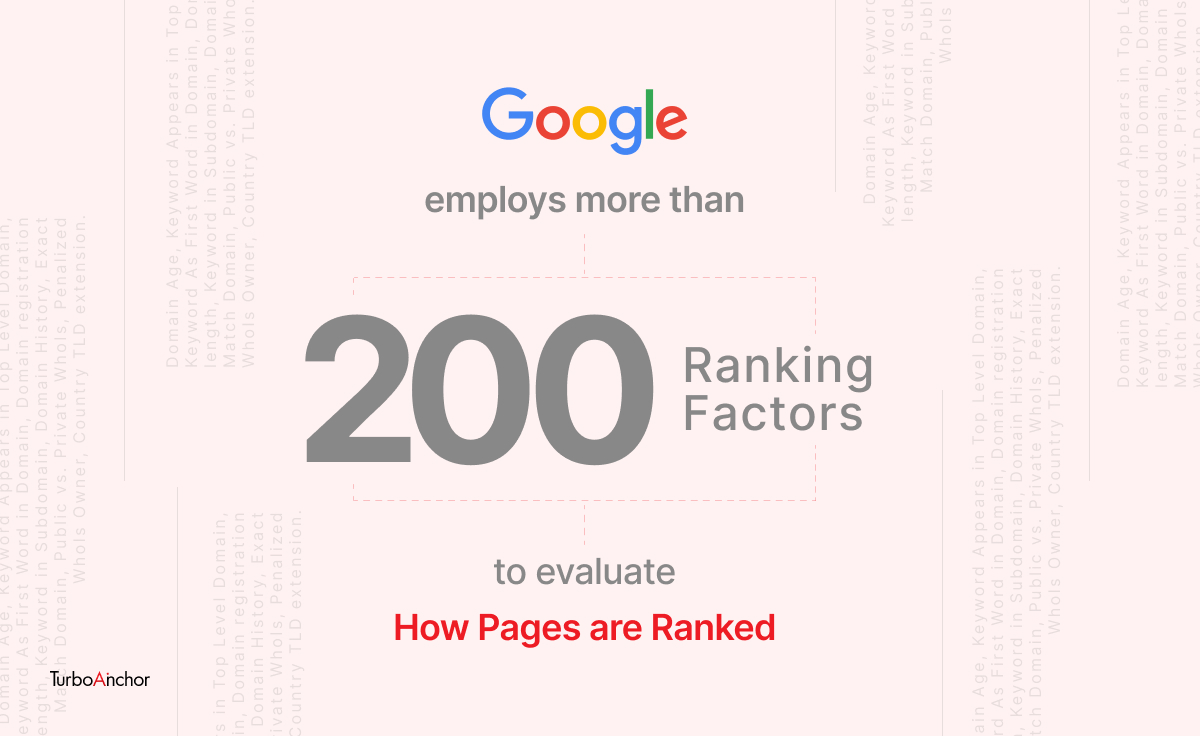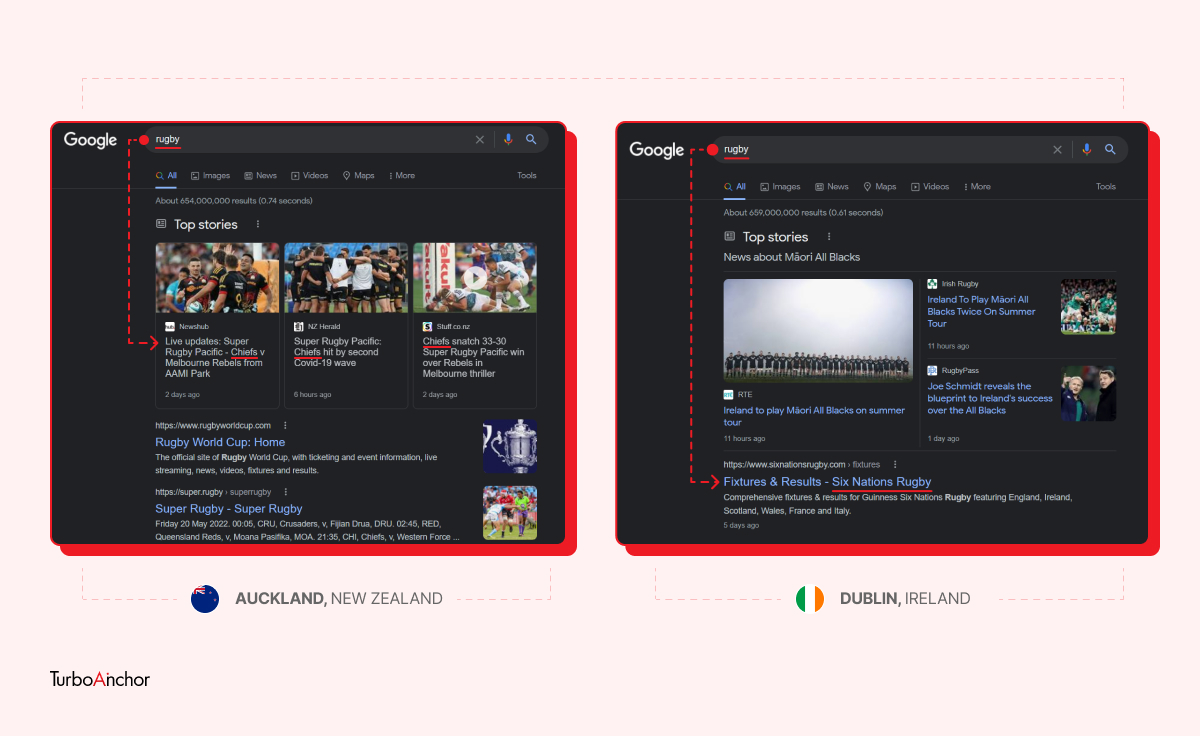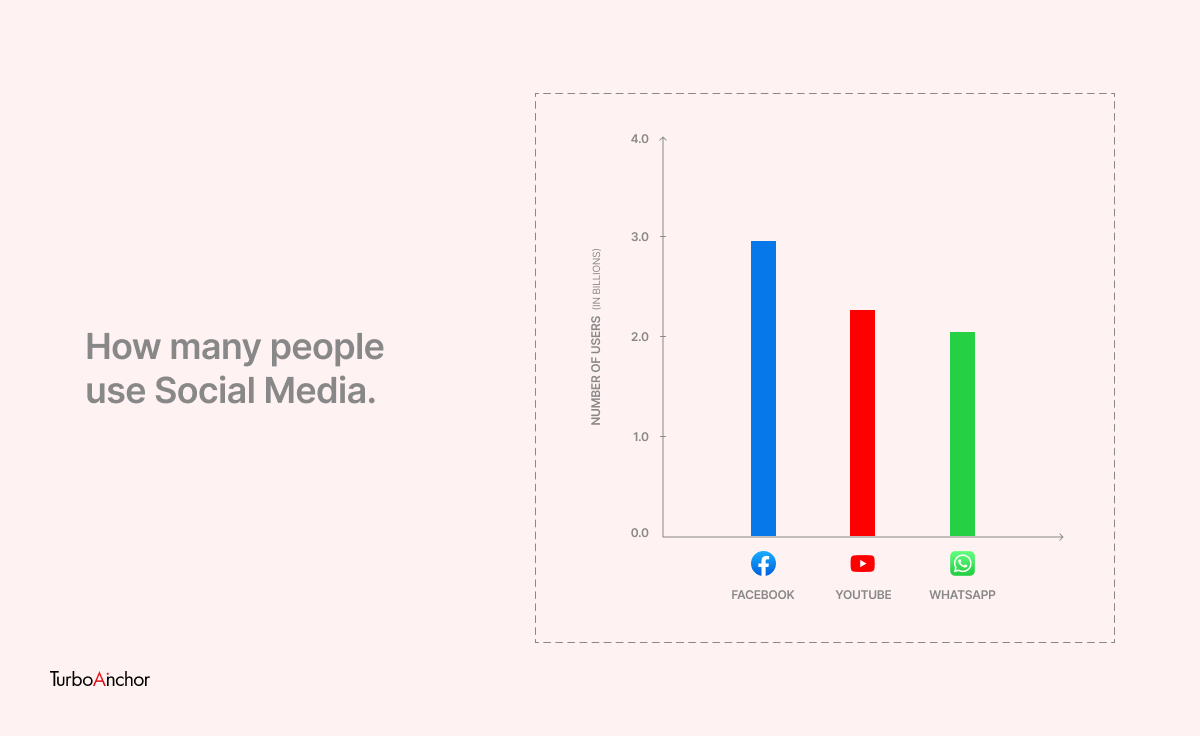How are Web Pages Ranked: Important Ranking Factors
Posted on: May 17, 2022 10:26 AM
Are you a web page owner or a content creator? Do you want to generate more traffic? Do you wonder how pages are ranked in search engines? Or, what is page ranking? Our article highlights these questions and lists critical ranking factors Google employs to evaluate page rankings.
Page ranking refers to ranking web pages for placement on search engine results page (SERPS). Search engines like Google employ techniques such as crawling (searching the internet for content), indexing (storage and organization of the content), and ranking (search results). Accordingly, it will rank those web pages at the top which are most relevant to a user’s query. Google employs more than 200 ranking factors to evaluate how pages are ranked. [1]

There are five fundamental steps that underpin Google’s ranking factor strategy.
It is imperative to know the intent of your query to understand its meaning – which you can understand by grasping the language. Google has developed various language models to decipher the words of each query. It also involves identifying spelling mistakes and scrutinizing the meaning of every word.
The ‘synonym’ tool is critical to determine varied words that imply the same thing. For instance, when producing the search results for the query ‘How to make a cake,’ the search engine can also show results ‘How to bake a cake’.

Next, Google uses algorithms to assess the web pages to check their relevance to a user’s query. At first, the relevance is limited by identifying the keywords. The keyword incorporation in the main body, titles, and headings indicate that the content is relevant.
Additionally, Google also converts aggregated and anonymous interaction data into signals to assist machine-learned systems in checking the relevance.
Apart from relevance, Google’s ranking factor strategy also prioritizes the quality of the web pages. Accordingly, the algorithms will identify whether the web page’s content is authentic and authorized. Search engines typically trust those sites that users prefer for matching queries.
Google ranking factors also consider user experience (UX) when examining web pages for rankings. Their algorithms identify and rank pages that are easy to use compared to those that are less easy to use. Similarly, these algorithms can also determine if pages are suitable for mobile devices or if the page loading speed is adequate for users with sluggish internet.
Search engines also analyze a user’s location, search history, and search settings to evaluate page rankings.
Search engines like Google use these elements to rank pages. For instance, if you are in Auckland and search “rugby,” Google will likely show results about ‘All Blacks’ first. On the other hand, if you are in Dublin and search ‘rugby,’ Google will rank links about the Six Nations Championship higher. Likewise, by taking into account your search activity, Google can also personalize results. If you search for ‘restaurants near me, it could show results based on your past searches about the food and restaurants.

With this information and an algorithm already in place, the search engine will crunch the numbers. Afterwards, they will consider various sites for ranking, apply their algorithms, and identify the appropriate sites to appear in the search results.
However, it is essential to note that even Google’s highly advanced AI algorithms cannot determine a user’s ethnicity, religion, or political affiliations.
Title tags are an HTML component that displays the web page’s title. The title should be unique, authentic, and crisp while also offering an overview of the content. As title tags are the most evident element of a web page in the SERPs, they are crucial for enhancing page ranking.
URL (Uniform Resource Locator) is the address of the web page that the user seeks to access. It is indispensable from an SEO perspective that URL structure should contain the primary keywords, reinforcing the page ranking in SERPs.
Keyword density indicates the frequency of a keyword term or phrase that appears on your web page relative to the text on the page. Keeping the keyword density between 1.25% and 1.5% of the entire text is advisable.
The internal linking strategy refers to the precise interlinking of websites. However, be attentive that you don’t overdo the search Google spams it. A solid internal linking strategy is vital for achieving higher page rankings in any search engine.
Search engines like Google consider backlinks as a ranking indicator. If one website is linked to another website, it signifies that the website’s content is accurate. Hence, linking high-quality and prominent websites to your page means that your content is reliable and will reinforce your rankings.
Videos and images are also vital to improving website rankings. Creating and optimizing high-quality video and image content provides information to search engines and advances your page rankings accordingly.
Social networking platforms are pivotal in improving your visibility on Google’s ranking factor system. Content creators can employ content seeding or devise a syndication strategy to share their web pages over various social media platforms like Facebook, YouTube, Twitter, and Instagram. According to a report, Facebook remains the biggest social media platform with 2.9 billion active users, followed by YouTube and WhatsApp with 2.2 billion and 2 billion users, respectively. [2]

The primary goal of website owners and content creators is to amplify the page rankings on search engines to generate traffic. And as such, they constantly assess how search engines rank pages. As mentioned above, Google uses about 200 ranking factors to rank pages; hence numerous factors have to be considered for higher page rankings in SERPs. If you want your page to rank higher, in that case, focus on these Google ranking factors to reap fruits.
Suggested Read:
References:
[1] “Top 200 Google Ranking Factors: Latest Updated List 2022.” – Tech Business News.
[2] “21 Top Social Media Sites to Consider for Your Brand.” – Buffer